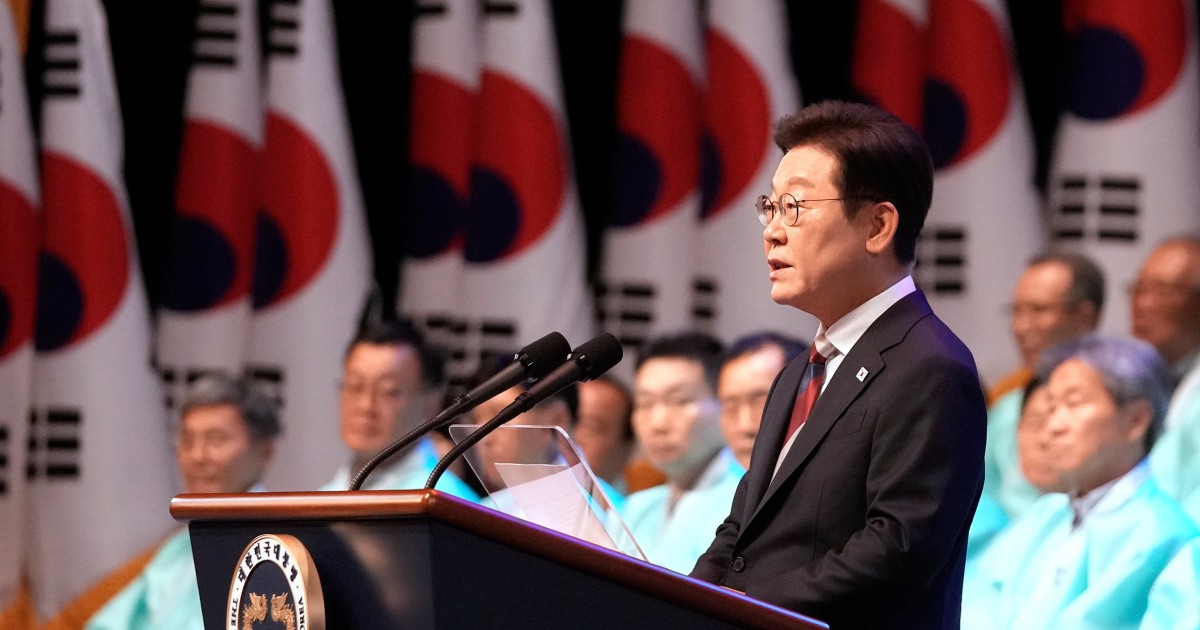South Korea’s New President Lee Jae Myung Pushes to Revive Inter-Korean Military Pact Amid Regional Tensions
South Korea’s New President Lee Jae Myung Pushes to Revive Inter-Korean Military Pact Amid Regional Tensions

SEOUL, South Korea — South Korea’s newly inaugurated liberal President, Lee Jae Myung, announced a significant policy shift on Friday, advocating for the restoration of the 2018 military agreement with North Korea. Speaking on the 80th anniversary of Korea’s liberation from Japanese colonial rule, President Lee urged Pyongyang to reciprocate Seoul’s efforts to rebuild trust and re-engage in dialogue.
The overture comes as tensions on the Korean Peninsula remain high, fueled by North Korean leader Kim Jong Un’s persistent nuclear ambitions and deepening strategic alliance with Russia, particularly in the context of the war in Ukraine. The 2018 pact, originally established during a brief period of diplomatic engagement under former President Moon Jae-in, created vital buffer and no-fly zones along the border, designed to prevent accidental military clashes.
The previous conservative South Korean government had suspended the agreement in 2024, citing provocations such as North Korea’s launches of trash-laden balloons. This led to a resumption of frontline military activities and propaganda campaigns by Seoul, a move that followed North Korea’s own declaration that it would no longer adhere to the pact.
“To prevent accidental clashes between South and North Korea and to build military trust, we will take proactive, gradual steps to restore the Sept. 19 military agreement,” President Lee stated in a televised address. He further emphasized his administration’s respect for North Korea’s current system, declaring that the South would not pursue unification by absorption and harbors no hostile intentions.
President Lee also reaffirmed South Korea’s commitment to international denuclearization efforts and called for the resumption of dialogue between Pyongyang, Washington, and Seoul. However, North Korea, under Kim Jong Un, has repeatedly expressed its lack of interest in abandoning its nuclear arsenal, viewing it as a crucial guarantee of survival, and has rejected future denuclearization talks.
Beyond inter-Korean relations, President Lee adopted a conciliatory approach towards Japan, appealing to Tokyo to move past historical grievances stemming from Japanese colonial rule and foster future-oriented ties. This comes ahead of his planned summits with Japanese Prime Minister Shigeru Ishiba and U.S. President Donald Trump, signaling a broader diplomatic push in the region.
Prime Minister Ishiba, who recently expressed “remorse” over Japan’s wartime aggression during a ceremony marking the 80th anniversary of his country’s surrender, has shown a willingness to improve relations with Seoul. Meanwhile, Kim Jong Un’s sister, Kim Yo Jong, recently mocked Seoul’s hopes for renewed diplomacy, reiterating Pyongyang’s disinterest in talks with Washington and Seoul, especially given upcoming joint military exercises between the allies.
Analysts suggest North Korea sees no immediate urgency for diplomacy with South Korea or the United States, prioritizing its alignment with Russia. Pyongyang has significantly bolstered Moscow’s war efforts in Ukraine since 2022, providing substantial military aid. Kim Jong Un himself praised the “infinite might” of ties with Russia during a liberation day speech in Pyongyang, making no mention of Washington or Seoul.
Disclaimer: This content is aggregated from public sources online. Please verify information independently. If you believe your rights have been infringed, contact us for removal.